|
After catching the overnight train from Tbilisi, Aseel and I roam the streets of Mestia, feeling sleep deprived and less than ready to commence our four-day walk through the Svaneti mountains in northwest Georgia the following day. Having heard that guesthouses in Adishi – the most isolated village on the trek – tend to fill up quickly, we ask our hostel owner in Mestia for help. A call to a guy named George is promptly made and before I know it, the phone is shoved into my hand. “Hello?” “Hello, this is George. I will say something to the man who is with you and he will write it down in Georgian. Take the paper and give it to Elisabeth in Adishi.” “Ok, madloba.” A breath of fresh airArmed with a piece of paper ripped from a notebook, we leave Mestia’s main square behind in the morning, cross the bridge and start climbing. The trail takes us over grasslands with beautiful views of Mount Ushba and then through forests. I catch myself greedily taking extra deep breaths of fresh mountain air, which feel more cleansing than ever, having spent the past two years inhaling the exhaust fumes of Amman’s chaotic traffic. After sitting down for a break in a meadow overlooking Mount Tetnuldi, we follow the ridge for a while to eventually descend into the Svaneti valley, crossing fields, pastures and villages. When we reach Mulkhura river, we dabble through the mud and meander between cows and creeks until the bridge to Zhabeshi village is in sight. After our first Georgian home-cooked dinner, we cross the guesthouse's creaky wooden floors and dive under the thick blankets in our stuffy room. "Awwwww, George!"The day begins with two hours of climbing through a dense forest. When we reach the cable car of Tetnuldi’s ski resort, we follow it further uphill until the trail turns right, leading us to an open area with colourful wildflowers. It is still early and with Adishi only an hour away, we kill some time over coffee in the makeshift trailer café at the top of the slope. When Adishi appears around the bend, an arrow reading ‘Elisabeth’s guesthouse’ points us in the direction of a large blue-painted wooden house at the bottom of the village. “Are you Elisabeth?” we ask the woman in the garden. “We have a letter for you from George.” Full of anticipation, I hand her the smudged sheet of paper. A smile quickly brightens up Elisabeth’s face: “Awwwww, George! Are you friends of his?” “Well, not exactly, but can we stay at your guesthouse tonight?” Grateful for George’s kind words securing a roof over our heads, we join the ever-growing group of hikers from all over the world arriving at the village’s one and only bar to discuss the adventures on trail thus far. When our fellow guests make their way to their rooms after dinner, Elisabeth secretively whispers to Aseel and I: “come, to the kitchen.” We oblige and follow her through the courtyard to the separate cabin, where we find the town’s young and old hanging out. An elderly woman puts another log into the central wood stove’s crackling fire, when our Dutch friend Niels stumbles in, equally puzzled. With all invitees present, Elisabeth walks over to the desktop in the corner and soon after, Pink Floyd blasts through the small speakers. “My favourite band!” Elisabeth’s monopoly over the modern-day jukebox is fleeting and after a few songs, Pink Floyd is forced to make way for Rihanna. “Come on girls!” Elisabeth’s younger aide shouts at us while shaking her hips with conviction on the kitchen-turned-dance floor. As the temperature rises, the gang makes its way to the local bar where the karaoke machine is hastily attached to a laptop to serve as the sound installation, bonus points for the disco lights. Having burnt more calories to the Spice Girls than on today’s hike, we hit the sack a few hours past bedtime. "You dance well to Beyoncé"We wake up at dawn to face the Adishi river, encouraged by fear-mongers, who had made its current sound legendary over the past two days. If we did not cross as early as possible, the glacial water would rise to our chest, or so we had been told. When we reach the riverbanks, the stream appears to be only ankle-deep with many other hikers wading through barefoot or paying local horsemen for a ride across. As we sit down and contemplate removing our shoes, a voice descends from on top of a horse: “I remember you. You dance well to Beyoncé. Half price for you and your friend.” And so we cross the river cowgirl style, tempted by the prospect of warm, dry feet. A rhododendron-lined mud path takes us uphill for the next two hours, until the Chkhunderi pass rewards us with out-of-this world views of the Adishi valley and glacier. From there, the trail heads straight down into the opposite valley, where we follow the Khaldechala river all the way to Khalde village, a ghost town we learn was razed by the Russian army in 1876. Its guesthouse – run by the only remaining family – tempts us with coffee. When we finally reach Iprali, we learn that our little caffeine break has cost us a place in the town’s handful of guesthouses. Along with several other unfortunate latecomers, we are picked up by a guesthouse in a neighbouring town. "We're sorry for our roads"Alas, last night’s detour means quite a bit of road walking in the morning until our path crosses the trail again. We join our fellow hikers for a section through the forest before hitting the dusty main road to Ushguli, where mini-vans and cows wrapped up in a slow dance of co-existence.
After a quick drink in the town, we catch a shared taxi back to Mestia and surrender to the driver’s eager honking and manoeuvring on the bumpy, winding roads. “We apologise for the state of this road,” a sign from the Georgian Traffic Department reads. Well, consider yourselves forgiven. |
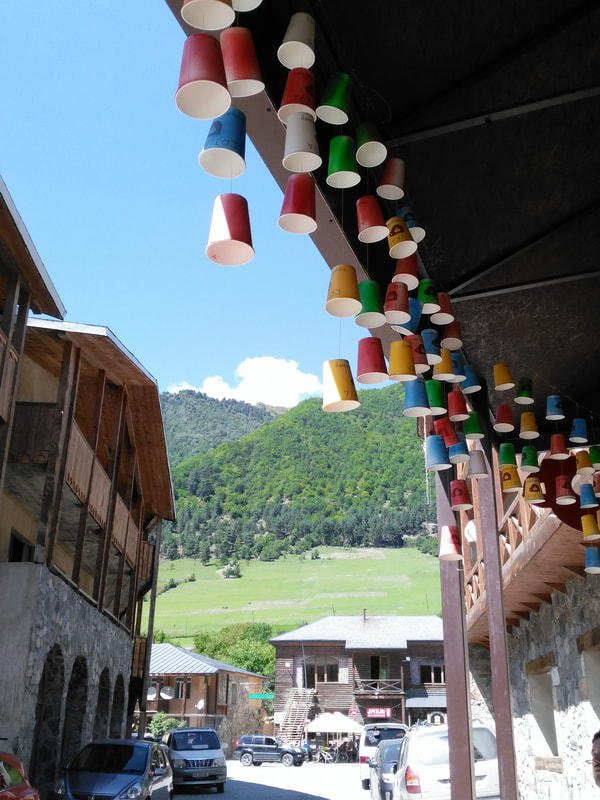
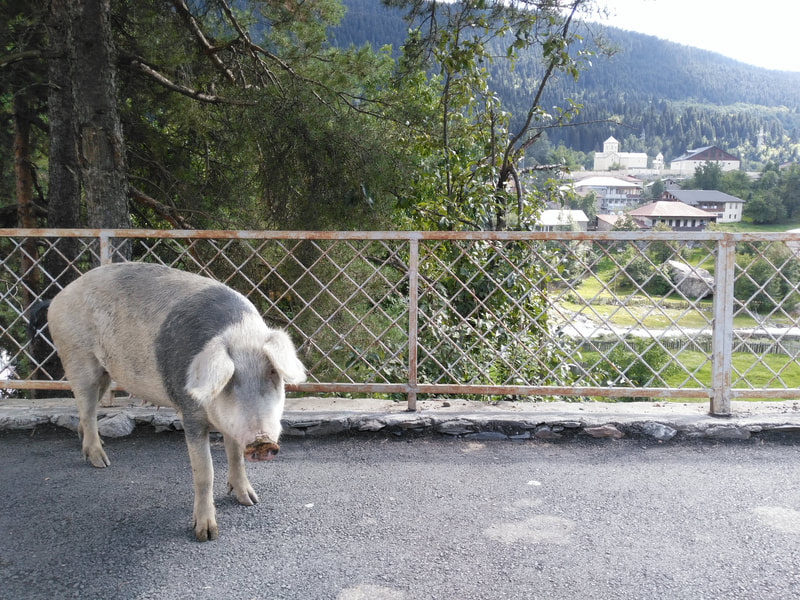
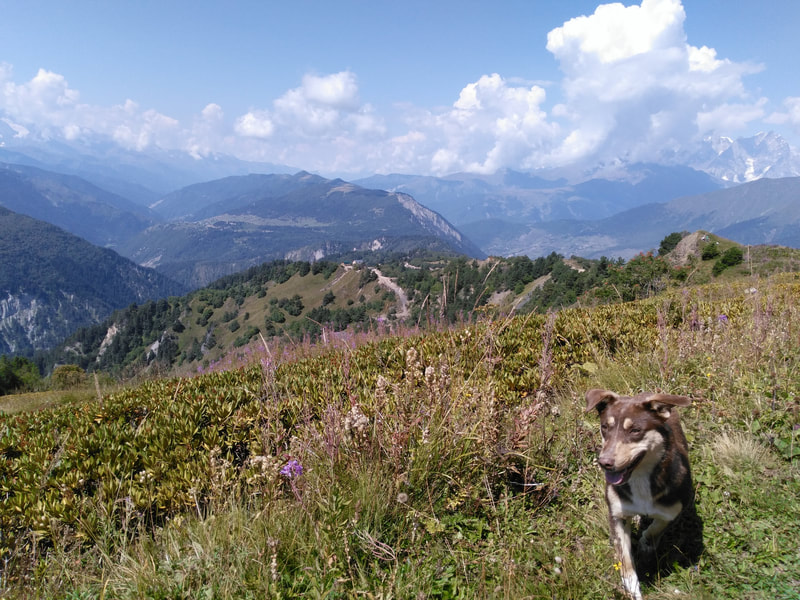
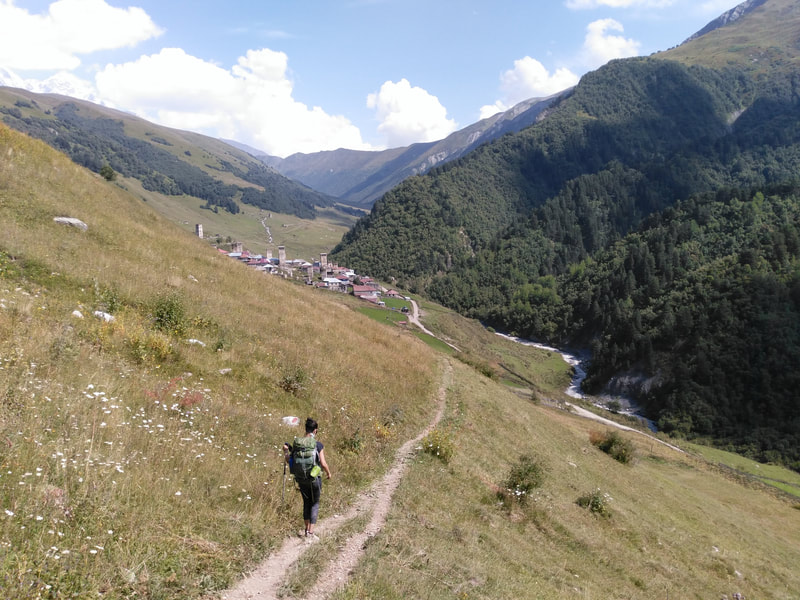
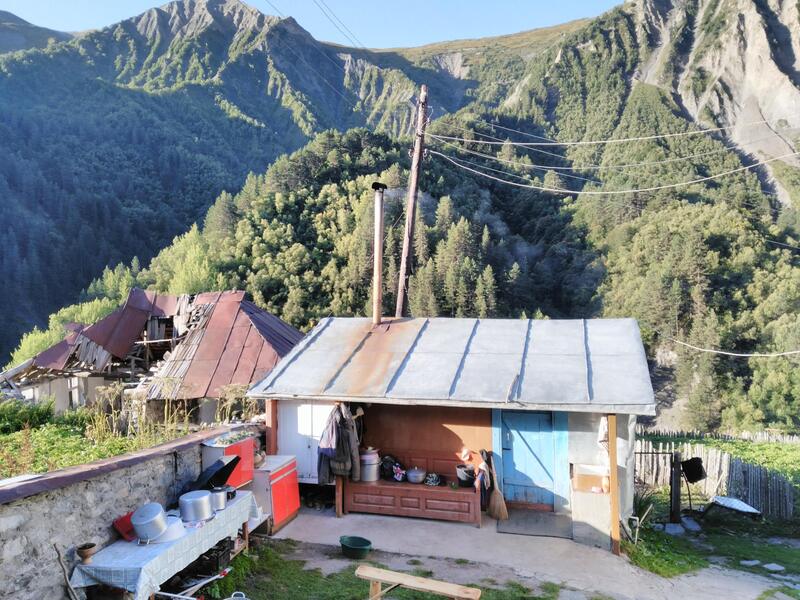
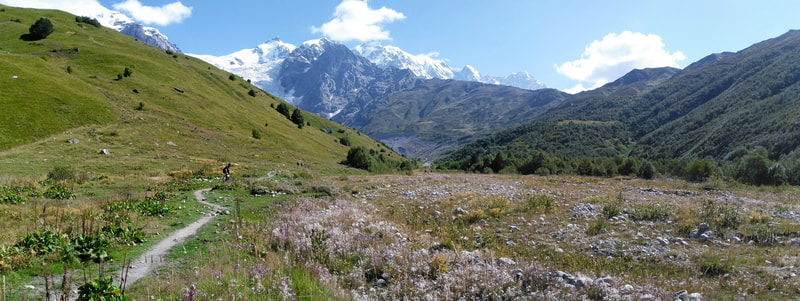
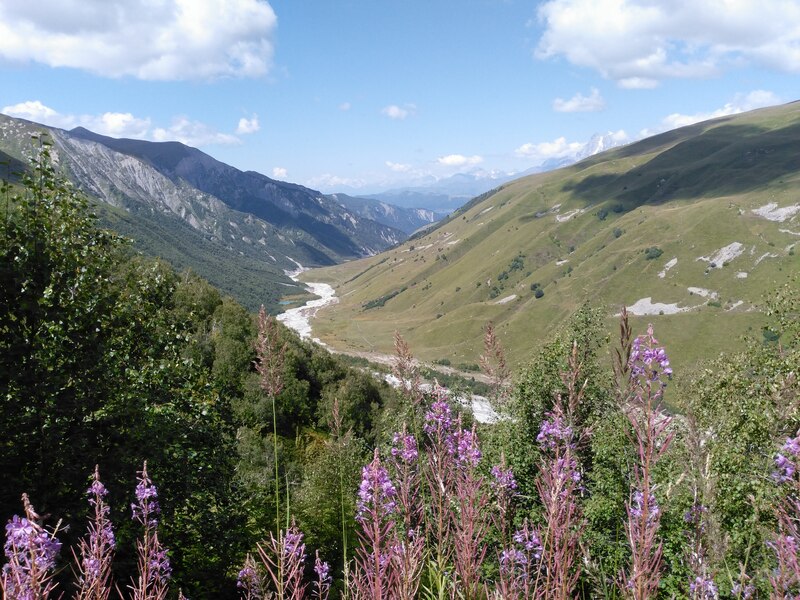
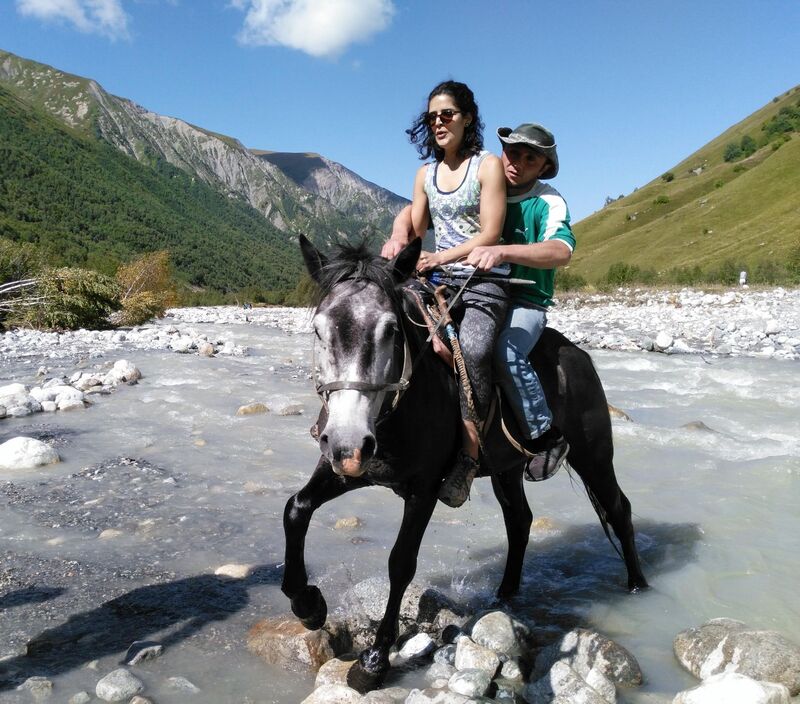
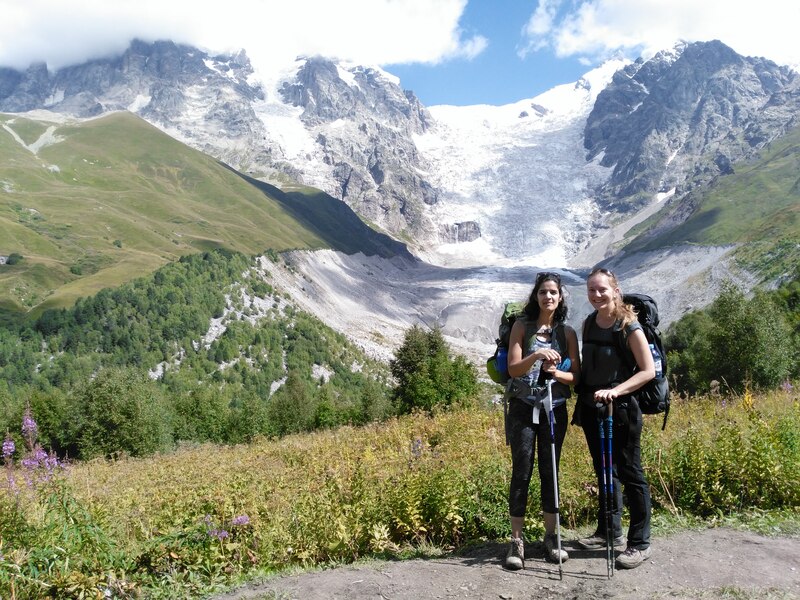
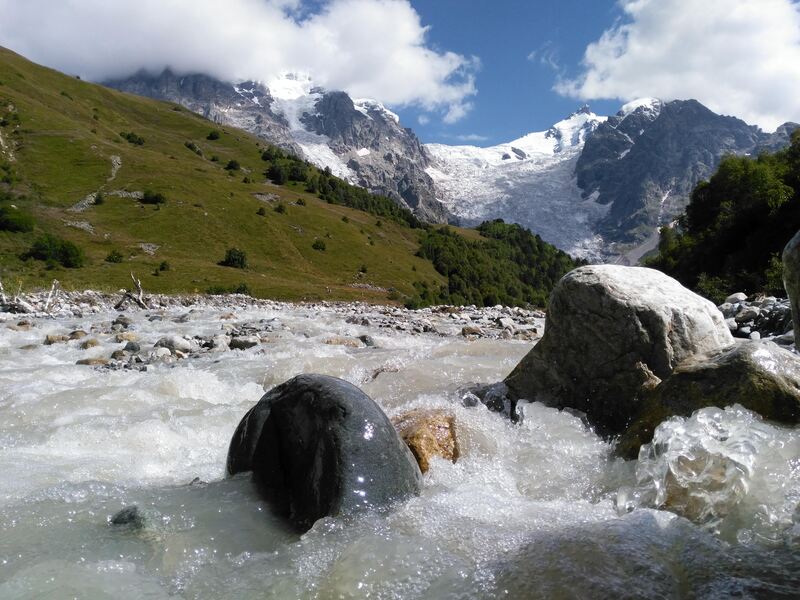
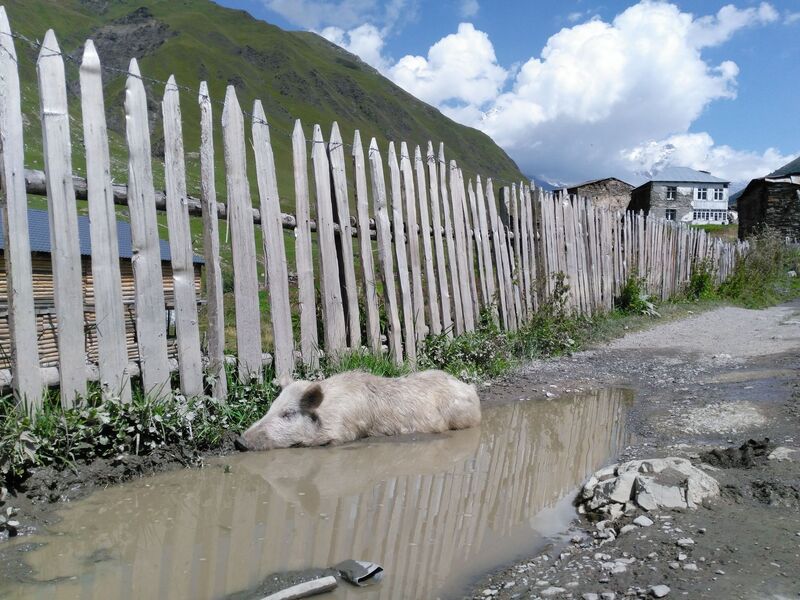
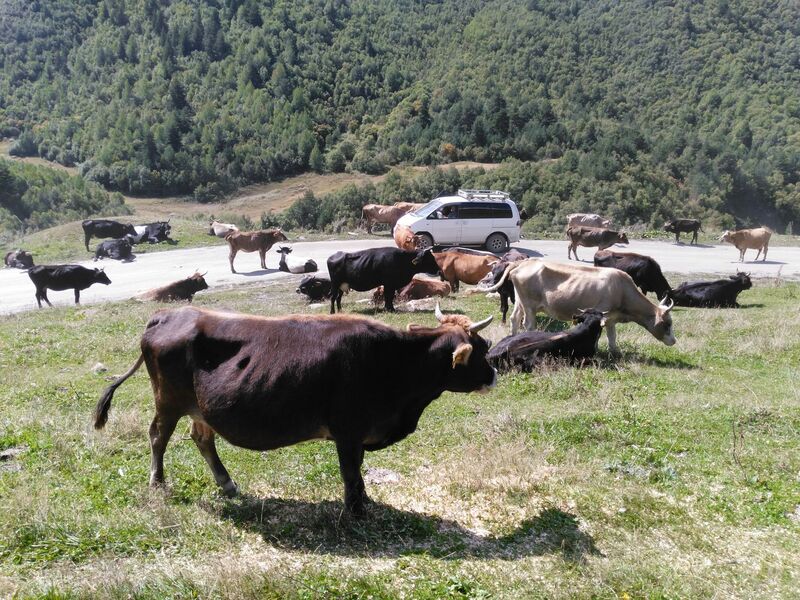
 RSS Feed
RSS Feed
